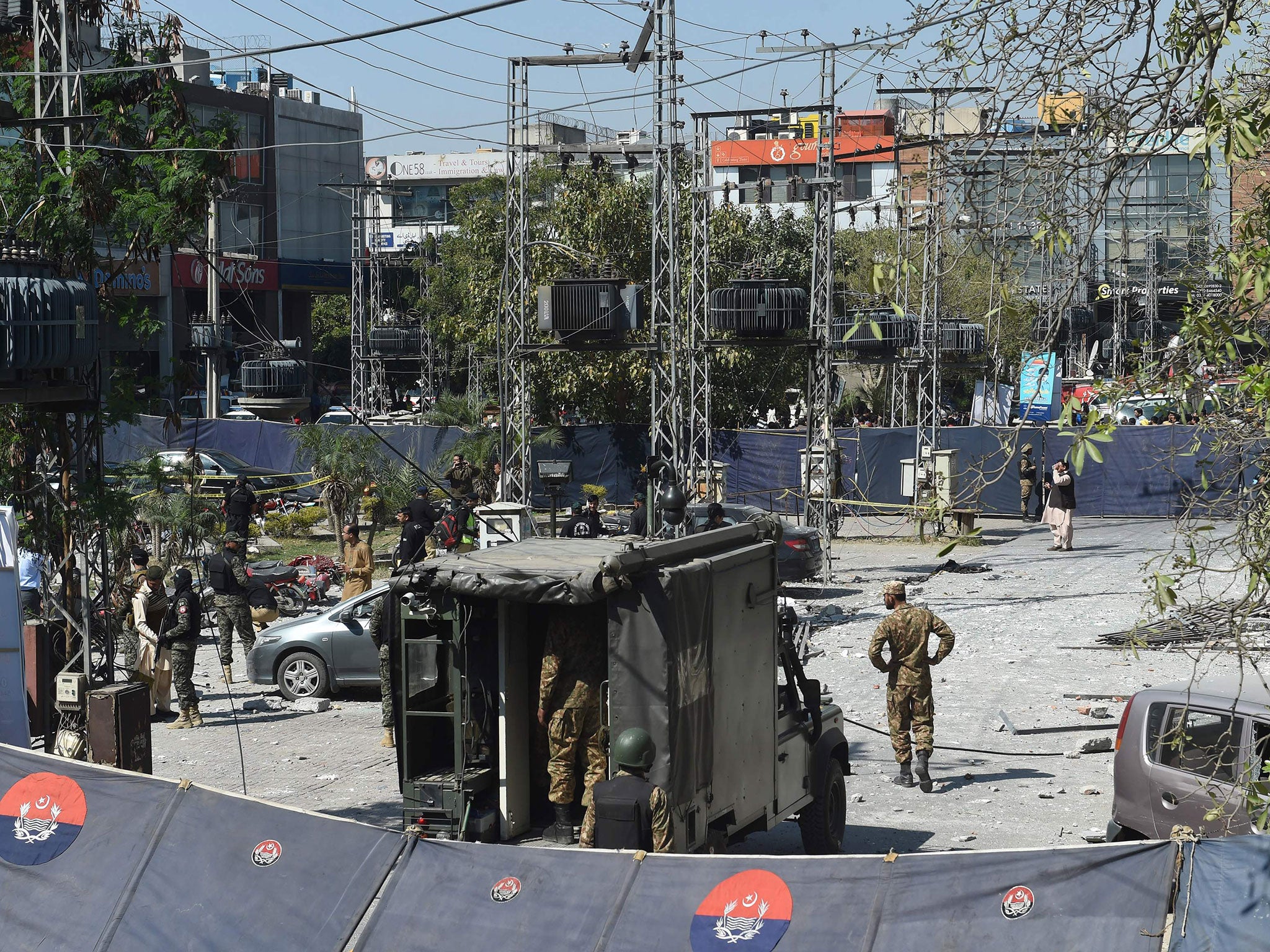Pakistan attacks: Explosion kills at least eight in Lahore as wave of terror attacks by Isis and Taliban continues
Blast strikes shopping area amid conflicting reports blast was caused by generator
Your support helps us to tell the story
From reproductive rights to climate change to Big Tech, The Independent is on the ground when the story is developing. Whether it's investigating the financials of Elon Musk's pro-Trump PAC or producing our latest documentary, 'The A Word', which shines a light on the American women fighting for reproductive rights, we know how important it is to parse out the facts from the messaging.
At such a critical moment in US history, we need reporters on the ground. Your donation allows us to keep sending journalists to speak to both sides of the story.
The Independent is trusted by Americans across the entire political spectrum. And unlike many other quality news outlets, we choose not to lock Americans out of our reporting and analysis with paywalls. We believe quality journalism should be available to everyone, paid for by those who can afford it.
Your support makes all the difference.At least eight people have been killed and more than 30 others injured in an explosion that hit a busy shopping area in Pakistan’s second-largest city.
Local authorities initially said the blast was caused by an electrical generator but police said it was a bomb – the latest in almost a fortnight of continuous terror attacks.
Nayab Haider, a spokesperson for Punjab police, the explosion was caused by a “planted bomb” that was either set on a timer or remotely detonated.

Security forces cordoned off the area in Defence Y Block, which houses restaurants, banks, offices and shops, preventing people from entering or leaving amid suspicions the bomber was still at the scene.
The force of the explosion blew out the windows of surrounding buildings and cars, spraying them with shrapnel as people fled.
Television footage showed smoke rising from part of a restaurant that was under construction in the Defense Housing Authority complex.
It is controlled by the military-backed department, with housing mainly given to people working for the armed forces.
A witness working in a nearby bank told Reuters he felt the building shake.
“We left the building and saw that the motorbikes parked outside were on fire and all the windows in the surrounding buildings were shattered,” Mohammad Khurram said.
Forensics officers were deployed to the scene as the wounded were taken to nearby hospitals, where volunteers including Punjab's health minister donated blood for the wounded.
A second explosion was reported shortly afterwards in the Gulberg district of Lahore, local media said, but officials said the false alarm was caused by a blown tyre.
More than 130 people have been killed in a wave of terror attacks that started on 13 February, when the Taliban’s Jamaa-ul-Ahrar faction announced the start of a new campaign of violence against the government, security forces, the judiciary and secular political parties.
It has claimed responsibility for the bulk of attacks, including a bombing and shooting that killed a child at a court in Charsadda and another blast in Lahore, but the deadliest single incident was orchestrated by Isis.
The terrorist group, which has an affiliate called Wilayat Khorasan operating in Pakistan and neighbouring Afghanistan, killed around 90 people who had gathered for a religious ceremony at a Sufi shrine.
Isis’ attack, the deadliest in Pakistan for years, was followed by a nationwide crackdown by the military that resulted in the deaths of more than 100 alleged “terrorists” in 24 hours.
The operation sparked warnings from humanitarian groups for Pakistani authorities to adhere to international law.
The violence has also worsened relations between Afghanistan and Pakistan, who have accused each other of harbouring terrorists and each sent lists of named militants allegedly residing in the neighbouring country.
Additional reporting by agencies

Join our commenting forum
Join thought-provoking conversations, follow other Independent readers and see their replies
Comments